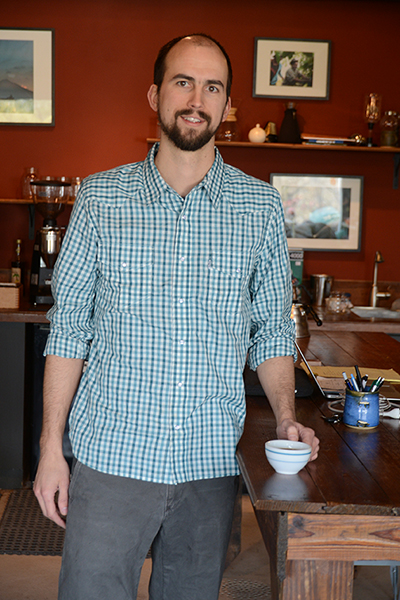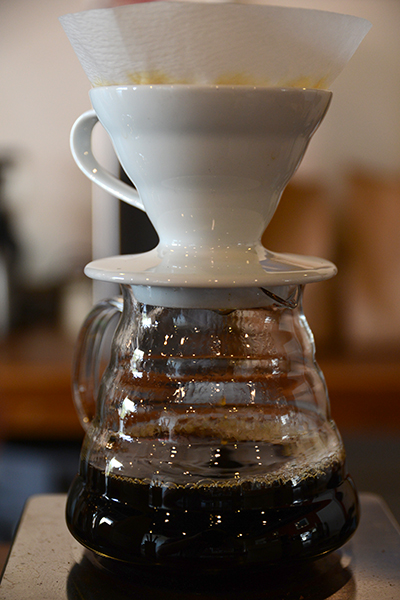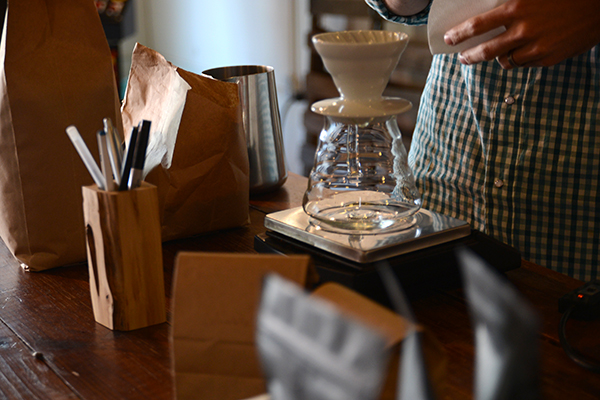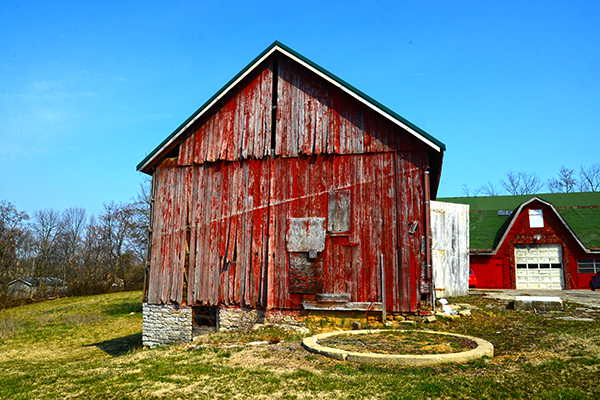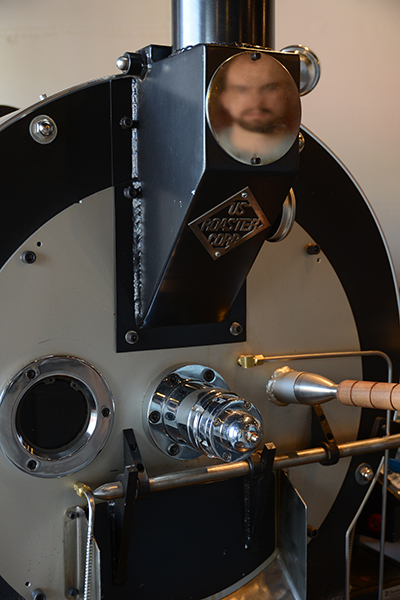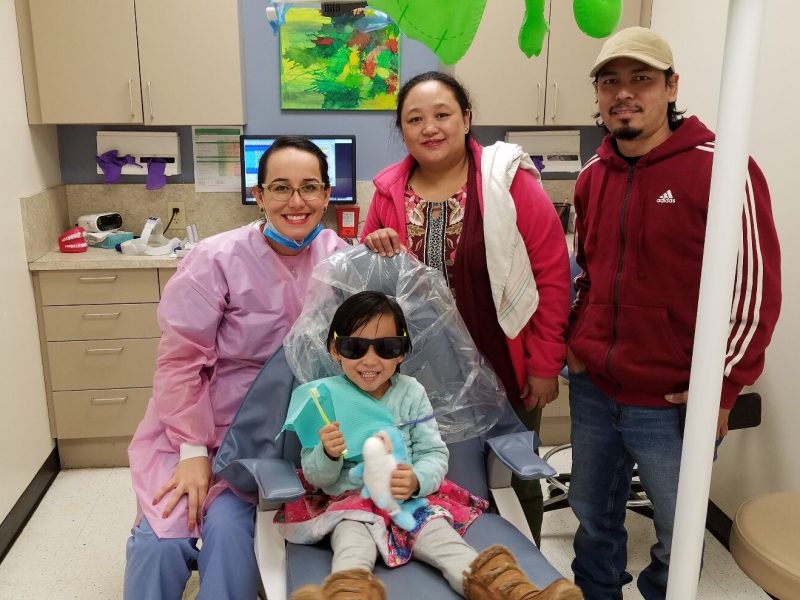From Guatemala with love: Deeper Roots partners with growers for richer roasts
What do a dairy barn in Mt. Healthy and this year's TED conference have in common? A shared love of top-quality coffee from a Guatemalan village that locals know thanks to relationships nurtured with Deeper Roots, a local roasting company and coffee consultancy.
When Julio Cuy found out that his coffee was being served, free of charge, at a big conference of intellectuals in southern California, he scratched his head. The Guatemalan farmer had only rarely tasted his own coffee—at least the stuff shipped off to the United States—and he had never heard of TED.
It took a few minutes to explain through a translator: the gathering of curious, open-minded people; the desire for not just some coffee, but for some of the country’s best coffee; and the process of cupping and sipping and evaluating to select his coffee from among 36 other options.
“He was very emotional about it once he understood the weight it carried,” says Les Stoneham, founder of the roasting company and coffee consultancy Deeper Roots. He met Cuy while visiting a friend in Antigua. “I dreamed about what it would look like to do development work with the coffee growers in that village.”
Heavily involved with the launch of Rohs Street Café in Clifton Heights, Stoneham was already a coffee evangelist, and would soon turn his attention from brewing coffee and pulling espresso to roasting the beans themselves.
These days, Stoneham visits Cuy in Santa María de Jesús, a Guatemalan village nestled at the base of Volcán de Agua, several times a year. He’s helped the farmers learn to improve quality and consistency, and he pre-purchases the beans before they’ve been harvested.
The resulting roast, dubbed “La Armonia Hermosa” (the beautiful harmony), is Deeper Roots’ most popular coffee. And Cuy is now the leader of 20-some Santa María de Jesús farmers who export a combined 15,000 pounds of coffee per year.
TED taste test
Christopher Schooley of Fort Collins, Colo., could provide a detailed description of La Hermonia Hermosa a month after the TED 2013 conference ended. “It’s bright in the middle with a sweet, chocolatey and caramel finish,” he says. “It’s a very approachable coffee with a great mouthfeel.”
Schooley reviews roasts for Coffee Shrub in West Oakland, Calif., an importer that sells unroasted, green coffee in micro-lots, which helps farmers who, like Cuy, might otherwise be unable to afford to produce high-quality beans and bring their product to larger markets. He also serves as coffee experience and design coordinator for the Specialty Coffee Association of America (SCAA), which is how he became project manager for the coffee service at TED 2013 in Long Beach.
At TED, free coffee and espresso came with a shot of education: the farm the coffee came from, the roaster’s know-how and a description of the meticulous brewing that brings out the beans’ best notes and undertones.
TED coffees were selected from roasts by SCAA’s Roaster’s Guild, whose members submitted their best work, which detailed how beans were sourced, the relationships between roasters and growers, the roasting equipment used and a flavor profile for the resulting product.
After a tasting that narrowed three dozen selections to 12 and then eight, La Armonia Hermosa was chosen as a solo brew and one of three coffees that would be blended for a signature TED espresso.
Schooley says the guild’s strength isn’t individual know-how, but the community’s ability to educate, troubleshoot and advise members not only about roasting, but about creating the kind of partnership Stoneham has with the Santa María de Jesús growers.
“That kind of relationship isn’t about how you should be growing your coffee,” he says. “It’s, ‘This is what I like about your coffee and how it tastes,’ and learning about how that happened so it’s replicable.”
Raising the bar on roasting
With Deeper Roots’ signature roast consistently earning high marks from Cincinnatians for flavor and consistency, it seems safe to say that the boom in its importing—which went from 1,000 to 15,000 pounds per year—hasn’t come with a sacrifice in quality.
“We’ve got a lot of regulars who come in every week to get a pound of the Deeper Roots’ Guatemalan,” says Dave Hart, co-founder of Collective Espresso, a coffee shop in Over-the-Rhine. “People have heard of us through Deeper Roots, so they come in seeking out that coffee.”
Hart is one of many local coffee shop owners who count on Deeper Roots not just to supply beans, but training, equipment, maintenance and advice. He and Stoneham agree that the taste for high-quality coffee in Cincinnati is growing. Stoneham says that latte art was virtually unknown when Rohs Street launched. Today, consumers seem eager to share the Guatemalans’ success as they sip.
Stoneham, Schooley and Hart see growing interest in specialty coffee in Cincinnati as more and more local roasters emerge. Stoneham doesn’t see them as competition, however, but as a band of unaffiliated apostles who spread the message of coffee’s potential.
“It comes down to getting people out of Starbucks and away from energy drinks, and introducing them to a different quality of coffee,” Stoneham says. He notes that the same dark roasts that help keep Starbucks’ brews uniform by hiding inconsistencies created the perception that a darker roast is synonymous with higher quality coffee.
Back to coffee bean basics
Joe Rocklin, a West Chester software engineer, buys three to six pounds of coffee per week, and selects from the half dozen or so ever-shifting varieties Deeper Roots carries. A coffee geek himself, he offers small quantities to office pools, friends and family.
“The quality is amazing, and the variety of offerings is wonderful,” he says. “I get bored drinking the same thing every day all year.”
And perhaps that’s part of the secret of Deeper Roots’ popularity. Rather than stocking the same coffees from month to month, they’re constantly experimenting with new beans, trying out tiny batches in a small roaster and picking the best to order in bulk.
Each week, they roast small batches of coffee in their Mt. Healthy home—a one-time dairy barn turned coffee-roasting haven—and sample beans from Ecuador to Ethiopia. To find the perfect roast, they take into account the density, moisture content, size and shape of the beans. They adjust everything from airflow to temperature to bring out just the right amount of sweetness and flavor before adding any unpleasant (think charred or burnt) flavors to the beans.
For now, the Deeper Roots team spends, on average, one day per week roasting and bagging coffee. Another day is spent purchasing and sourcing new beans. The rest of the time is spent consulting with cafes, tasting with consumers, promoting best brewing practices and working with brewing and roasting equipment.
Stoneham, who only drinks about three cups of coffee per day, hasn’t ever had a desk job. But he has a quick answer when asked how many days per week he works: “All of them.”
It’s a work ethic he shares with Cuy, with whom he also shares an interest in the beans grown in Santa María de Jesús each year.
While Stoneham’s biggest worry is storage and transportation of the harvested beans—a hijacked shipment could quickly become a financial mess for Deeper Roots and the farmers—he says the farmers are still living with an eye toward basic survival. Their well-being depends, indirectly, on consumers who are willing to pay a fair price for the extra effort that premium coffee requires, from growing to roasting.
Robin Donovan is a Soapbox contributor who recently tasted the Burundi Cup of Excellence for the first time.


